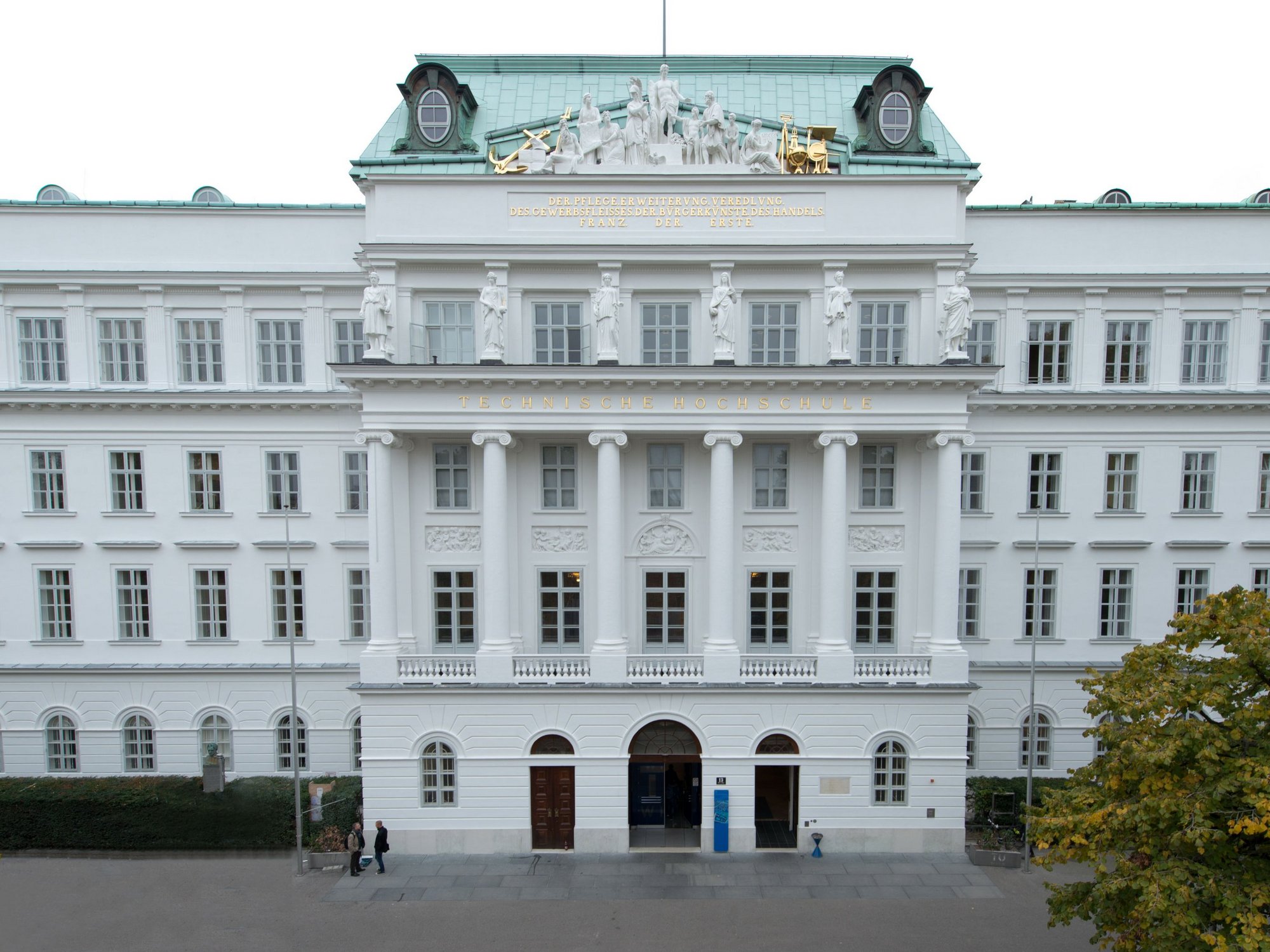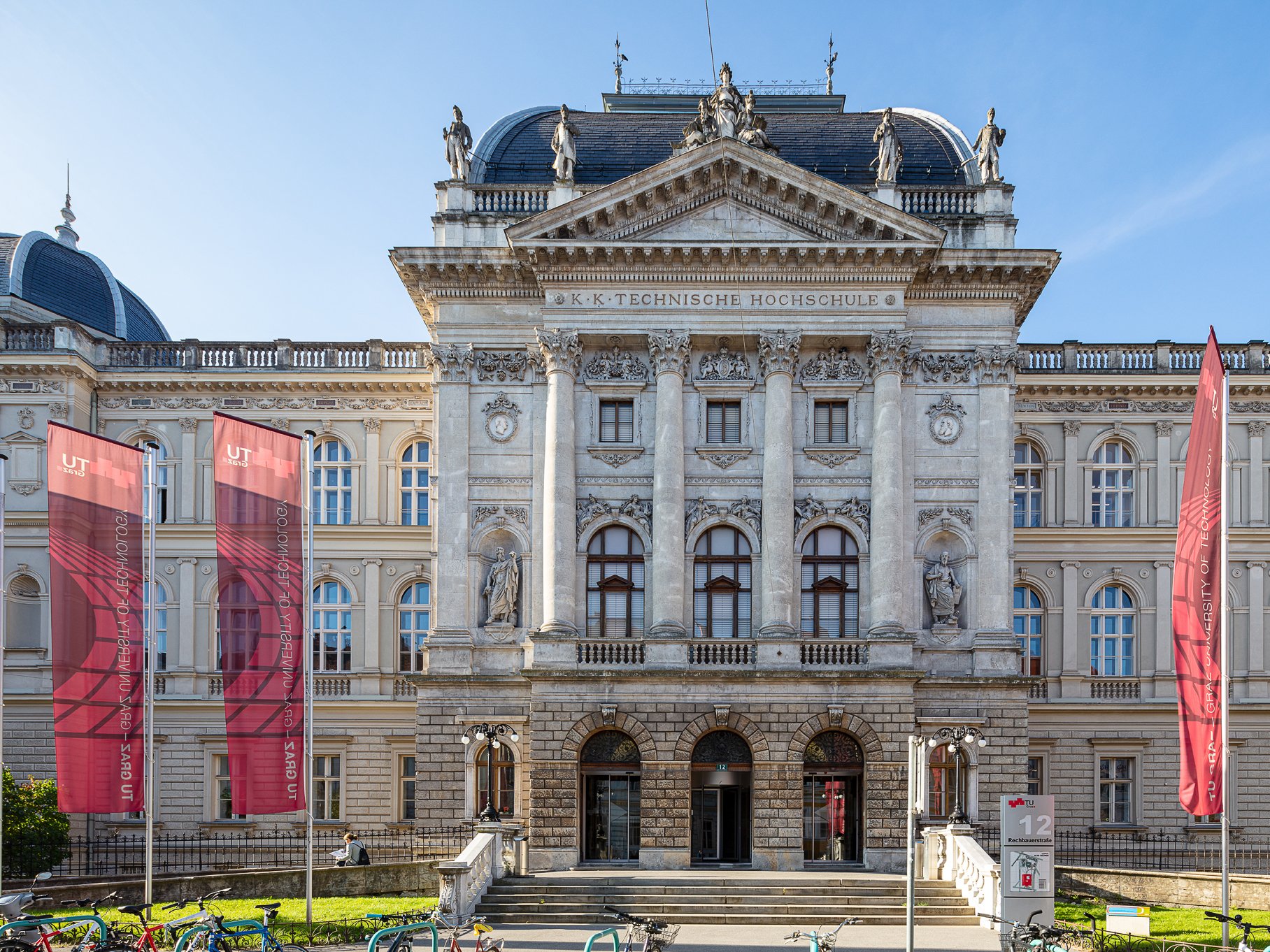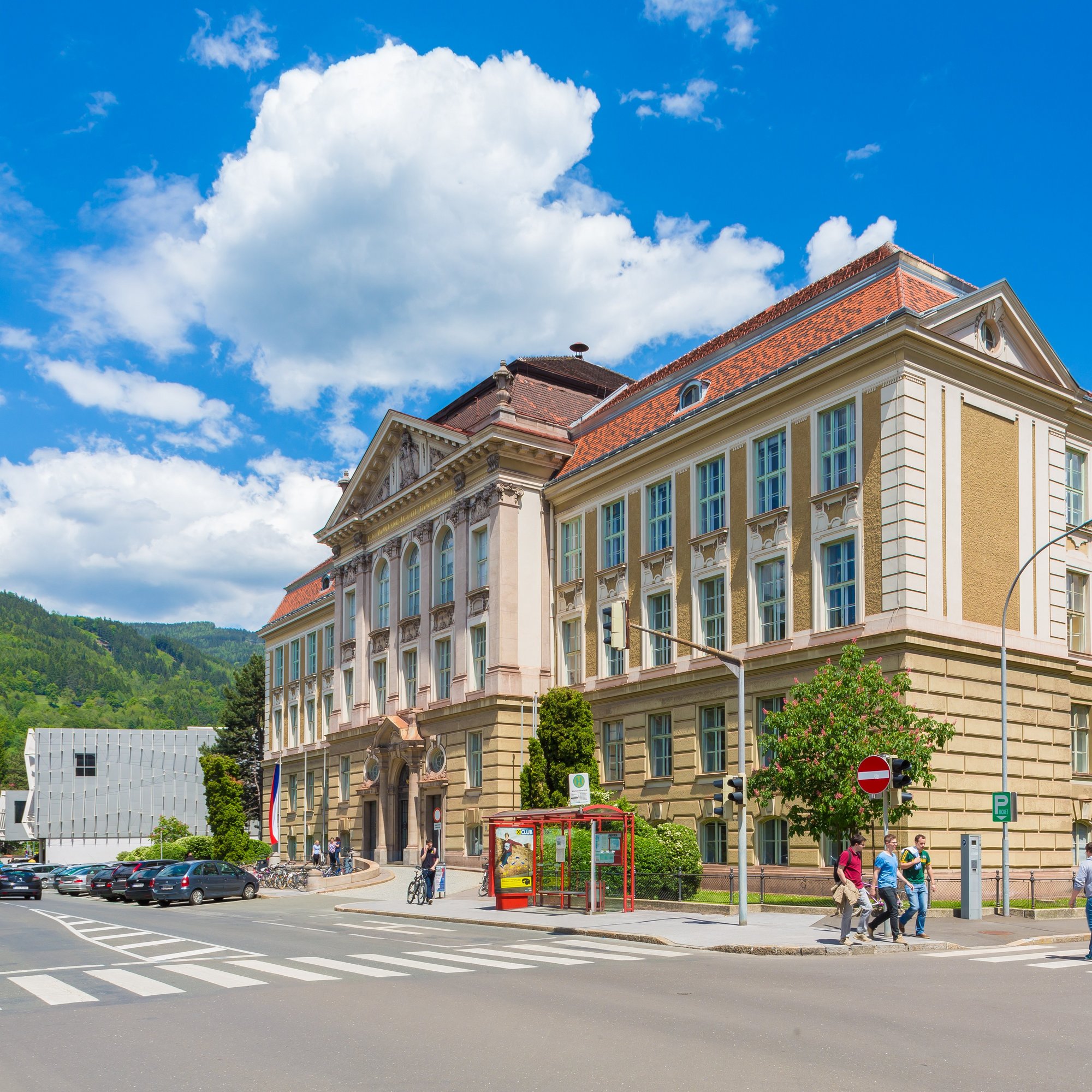The 3 TU

© TU Wien, Foto: Thomas Blazina
TU Wien
TU Wien is the largest of the 3 TU Austria-Universities.
TU Wien is Austria’s largest research and academic institution in the field of technology and natural sciences. More than 4,000 scientists are researching “technology for people” in five main research areas at eight faculties. The content of the studies offered is derived from the excellent research. Around 26,000 students in 55 study programmes benefit from this.
Through knowledge and technology transfer in society and industry, TU Wien has been making an indispensable contribution to the international competitiveness and innovative strength of Austria as a research location since 1815. Basic research is one of the main domains of TU Wien.
At the same time, TU Wien is extremely successful in the interdisciplinary implementation of research results. This ranges from biomedicine and quantum optics to safety, energy and environmental technology. Due to its openness to the needs of industry and the high quality of its research, TU Wien is an important partner for national and international companies, but also for public institutions.
As a cosmopolitan university, TU Wien lives internationality in teaching, research and services. Through strategic university partnerships as well as memberships in international university networks and associations, TU Wien sets regional focuses, interacts on an international level and actively participates in the international discourse on higher education policy.
TU Graz
TU Graz is the oldest among the 3 universities.
Science, passion, technology: Graz University of Technology has been a leading research and teaching institution for more than 200 years. Founded in 1811 by the Austrian Archduke Johann, the university in the “green heart” of Austria is carrying innovative prowess and vision forward into the future. Five research areas (Fields of Expertise) shape its distinctive academic profile. Nearly 14,000 students from 100 countries worldwide are currently studying science and engineering in the university’s seven faculties and almost 100 departments.
TU Graz has been keen to internationalize its academic programmes and offers a large part of its master programmes, and all of its PhD courses, in English. It also maintains strategic partnerships with prestigious research and educational institutions from all over the world. Graduates have excellent career prospects and are sought after in Austria and abroad. With approximately 3,000 employees, TU Graz is itself one of the region’s largest employers.
TU Graz has always collaborated closely with business and industry, other universities and scientific institutions. One of the most successful of these is NAWI Graz, a partnership in science teaching and research with the University of Graz. In 2015, TU Graz and Siemens set up a shared Center of Knowledge Interchange (CKI). TU Graz has a strong position as an entrepreneurial university in Austria, as demonstrated by its pre-eminent position in the FFG COMET programme, its high level of external funding, the international success of its student teams and the startup incubator Science Park Graz.

© Markus Kaiser

MU Leoben
Montanuniversität Leoben is the most specialized of the 3 universities.
The work of the Montanuniversität has been characterised by research, researchled teaching and collaboration with business from the very beginning. Although this initially focused on the disciplines of mining and metallurgy when it was established, the Montanuniversität has undergone significant expansion since the middle of the 20th century. As a result, the university then developed further from its core areas along the value chain which extends from geology, raw material resources and energy resources to mining and tunnelling, metallurgy, highperformance materials, and machine construction to process technology, environmental technology and recycling. By extending the departments for environmental technology and recycling, the raw materials cycle was closed so that now it is more apt to speak of a value cycle in the sense of a circular economy rather than of a value chain. Industrial energy technology, industrial logistics, and industrial data science round off the portfolio as crosssectional competencies. As a result of the development of the research and teaching programme along this value-added cycle, the Montanuniversität succeeded in developing a distinct profile, nationally and internationally, and in establishing a unique position. Even when compared internationally, there are few locations which can boast a similar range of skills. With its unique profile, the Montanuniversität covers all components of circular economy, and the benefits of synergies can be yielded optimally within the research area. The key motto is thus “Where research becomes the future”.